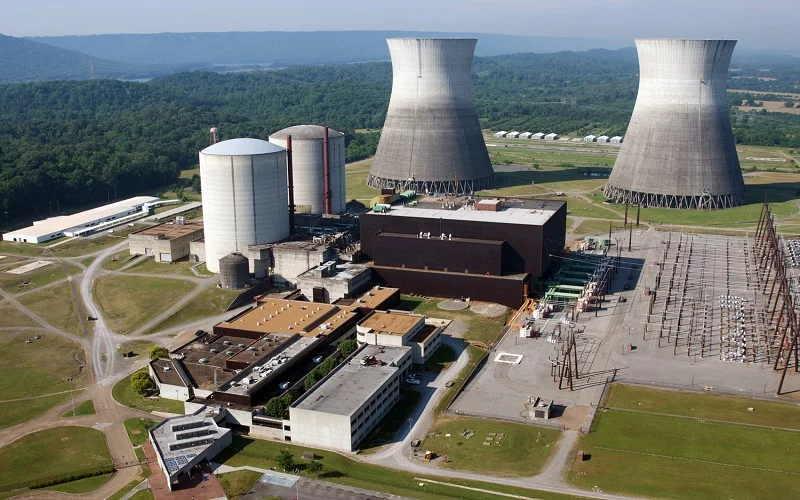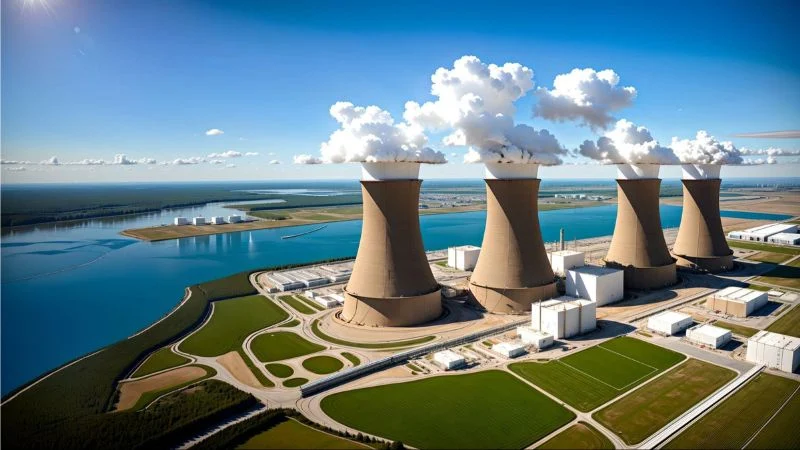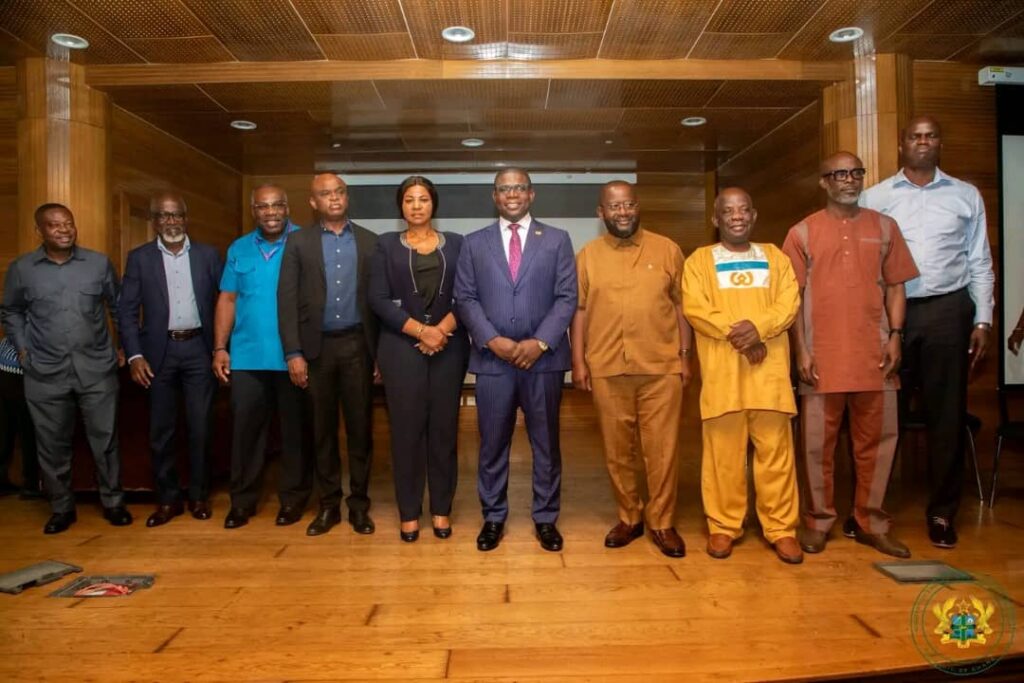The Deputy Minister for Energy and Green Transition of Ghana, Hon. Richard Gyan-Mensah (MP) has reiterated the government’s unwavering commitment to the development of nuclear energy as a core pillar of the nation’s power generation strategy.
Speaking at a high-level Stakeholders’ Engagement in Accra on the Draft Bill to establish the Ghana Nuclear Power Company, the Deputy Minister described nuclear energy as a strategic and sustainable solution to Ghana’s increasing electricity demands.
“Ghana’s energy demands are growing rapidly, and we must diversify our sources to ensure a stable and sustainable supply of power.
“Nuclear energy offers baseload power to support industrialisation, low-carbon electricity to meet our climate commitments under the Paris Agreement, and long-term energy security.”
Hon. Richard Gyan-Mensah, Deputy Minister for Energy and Green Transition
Held under the auspices of the Ministry of Energy and Green Transition, the engagement brought together energy policy experts, civil society actors, legislators, and international development partners.
At the centre of the conversation was the nation’s intent to operationalise nuclear power through a formal institutional and legislative framework.

With electricity demand expected to surge alongside industrial growth, Ghana’s existing energy infrastructure faces rising pressure.
The Deputy Minister explained that while renewable sources like solar and wind are essential, they are intermittent and cannot singlehandedly shoulder the country’s base load needs.
“Nuclear energy presents a clean, efficient, and reliable alternative to fossil fuels.
“It has the potential to drastically cut greenhouse gas emissions and reduce our dependence on imported liquid fuels.”
Hon. Richard Gyan-Mensah, Deputy Minister for Energy and Green Transition
Hon. Gyan-Mensah also pointed to international trends, where nuclear is being reintegrated into global climate action strategies, particularly in regions pursuing deep decarbonisation.
Institutionalizing Ghana’s Nuclear Ambitions

The Draft Bill to establish the Ghana Nuclear Power Company represents a cornerstone in Ghana’s nuclear roadmap. Once passed, the legislation will provide the legal foundation for overseeing the planning, construction, and eventual operation of nuclear power plants in the country.
“This Bill signals our readiness to institutionalise nuclear energy development.
“It ensures that Ghana remains aligned with international best practices, safety protocols, and transparency mechanisms.”
Hon. Richard Gyan-Mensah, Deputy Minister for Energy and Green Transition
Ghana’s nuclear journey is guided by the International Atomic Energy Agency’s (IAEA) Three-Phase Milestone Approach for newcomer countries.
The country has already made notable progress in Phase 1, which includes national positioning, legal and regulatory development, and stakeholder engagement.
“The IAEA has acknowledged Ghana’s strong commitment to nuclear development.
“We are determined to advance through each phase methodically, ensuring compliance with the highest global standards.”
Hon. Richard Gyan-Mensah, Deputy Minister for Energy and Green Transition
Anticipating concerns from the public regarding nuclear safety, environmental risks, and governance, the Deputy Minister reaffirmed the government’s commitment to openness and evidence-based decision-making.

“Our process will be inclusive. We will continue to engage the public, civil society, academia, and local communities.
“Our decisions will be risk-informed and aligned with the best interests of the Ghanaian people.”
Hon. Richard Gyan-Mensah, Deputy Minister for Energy and Green Transition
Safety remains paramount in the design and rollout of Ghana’s nuclear infrastructure. The future nuclear company, along with the Ghana Nuclear Regulatory Authority and the Nuclear Power Institute, is expected to ensure stringent adherence to safety and environmental standards.
The integration of nuclear power into Ghana’s energy mix will not only enhance reliability for domestic consumption but also position the country as a regional energy hub.
As the government pushes forward with the energy transformation agenda, nuclear power is emerging as a bold new frontier in Ghana’s energy policy. The path ahead will require comprehensive public education, strong partnerships, and sustained political will.
But for now, the passage of the Draft Bill and the establishment of the Ghana Nuclear Power Company will mark the beginning of a new era in the country’s energy development.
READ ALSO: Mastercard and Access Bank Unveil Innovative Age-Segmented Card to Empower Ghana’s Youth



















